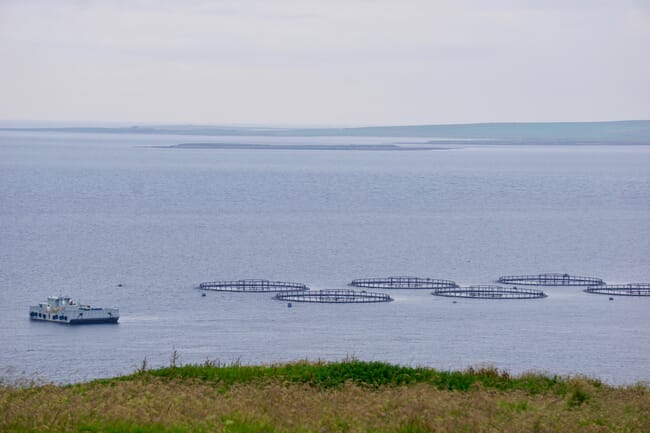Scottish Sea Farms, together with local landowners Haydn Jones and Nick Lyde, are to build the homes within the secluded hamlet of Mill Bay on Eday, one of the smaller Orkney islands, with just 76 habitable properties for a population of 129 people.

© Scottish Sea Farms
Costing £750,000, the new development will create four new homes for employees of the nearby salmon farm, helping overcome the lack of available accommodation, with a further two homes available to rent by islanders or visitors.
Phil Boardman, farm manager at Eday, said: “We’ve been farming on the island for over seven years now and while the conditions for growing salmon are superb, the remote location has made recruitment difficult.
“Unless employees live on one of the nearby islands such as Sanday, they face a two-hour commute by boat from Orkney mainland, then have to stay over on one of the islands until their next weekend off, leaving little time for family, food shopping or looking after home and garden. The result is that we have seen valued employees leave with every crop cycle – they loved the job, just not the logistics that go with it.”
Boardman, whose first degree was in construction followed later in life by a postgraduate diploma in sustainable aquaculture from the University of St Andrews, something had to change.
“Step one has been to introduce a two-week on, two-week off shift pattern which is enabling the team to balance farm life and home life. Step two, and equally critical, will be building these high spec houses for the team to go home to after each shift, sparing them the commute to other islands and ensuring they have a good quality of life.
“We gave the team the choice of multi-bedroomed communal homes or single-dwelling and the decision was unanimous – they wanted their own space. The bonus of having the two rental homes meanwhile is that there will also be somewhere for visitors, contractors and auditors to stay.”
One of the first Scottish Sea Farms’ employees to benefit from the new accommodation will be 28-year-old Charlotte Owen: “The two-week on, two-week off shift pattern has already made a huge difference, ensuring there’s sufficient time around work to leave the island, see family and friends, and generally catch up on all things life. The only downside is that, during my two weeks on, I’m having to stay in shared accommodation with colleagues, so the days of going home to my own space at the end of each shift can’t come soon enough.”


